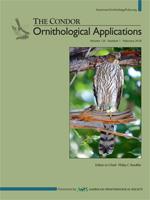Choosing a high-quality mate contributes to increased reproductive success in birds. Females assess quality in males, in part, via condition-dependent signals such as songs and plumage. The production of these signals of quality can be disrupted by environmental stressors, including toxic pollutants such as mercury. Mercury affects song, plumage, bill color, and courtship behaviors in male birds, but the effect of these changes on female mate choice is unknown. By affecting the condition-dependent signals that females use to assess quality, mercury could alter males' attractiveness to females. We used mate choice of female Zebra Finches (Taeniopygia guttata) to determine if male attractiveness to females is affected by lifetime exposure to mercury. Males were either exposed to dietary mercury or left unexposed and then assessed by unexposed females in 3 types of mate preference tests: song-playback phonotaxis (preference for audio recordings of mercury-exposed or unexposed males' songs); 2-choice social association preference (simultaneous choice between mercury-exposed or unexposed males in adjacent cages); and pairing (opportunity to pair with either a mercury-exposed male or unexposed male in an aviary). In song-playback phonotaxis and social association tests, females did not spend more time near songs or males of one treatment over the other, despite measurable differences between songs. In an aviary pairing test, females were equally likely to pair with males of either treatment. While mercury exposure is known to reduce production of offspring in Zebra Finches and other birds, our results suggest that captive female Zebra Finches may not be incorporating mercury-induced variation in male traits into their mate choice decisions. If female birds living in contaminated environments experience fitness losses as a result of potentially poor mate choice decisions, then females may eventually respond to this sexual selection pressure by including toxicant-mediated trait variation in their quality assessment mechanisms.
How to translate text using browser tools
3 January 2018
Attractiveness of male Zebra Finches is not affected by exposure to an environmental stressor, dietary mercury
Virginia W. Greene,
John P. Swaddle,
Dana L. Moseley,
Daniel A. Cristol
ACCESS THE FULL ARTICLE

The Condor
Vol. 120 • No. 1
February 2018
Vol. 120 • No. 1
February 2018
condition-dependent signals
environmental contaminants
mate choice
mercury
reproductive behavior
song
Zebra Finch




